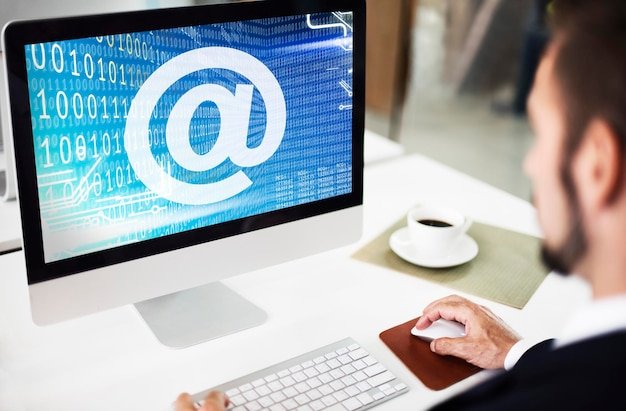Defend Against Phishing Email Spam Protection and Spam: Essential Protection Guide with McHelper.com
Phishing-email-spam-protection is crucial in today’s digital landscape, especially for professionals and small business owners. This guide aims to provide insights and strategies to safeguard sensitive information, ensuring the security and integrity of digital communications.
Learn About Phishing Email and Spam Protection with McHelper.com
By reading this article, you will learn: – How to recognize and defend against phishing attacks and spam emails. – Strategies for implementing email security best practices and employee training. – The importance of continuous improvement and regulatory compliance in phishing protection.
Importance of Phishing and Spam Protection in Cybersecurity with McHelper.com
Defending against phishing email and spam is integral to cybersecurity. These deceptive tactics often serve as entry points for various cyber threats, including malware, ransomware, and data breaches. By fortifying defenses against phishing and spam, individuals and organizations can mitigate the risk of compromising sensitive data.
Overview of the Threat Landscape with McHelper.com
The evolving threat landscape demands vigilance and proactive measures to counter the persistent risk of phishing email and spam. Cybercriminals continually refine their tactics, making it crucial for individuals and organizations to stay informed about the latest trends and protection strategies
Understanding Phishing with McHelper.com
Definition and Mechanisms of Phishing
Phishing is the fraudulent attempt to obtain sensitive information by masquerading as a trustworthy entity in electronic communication. Cybercriminals often utilize emails, instant messages, and deceptive websites to execute phishing attacks.
Psychological Manipulation in Phishing Attacks
Phishing attacks frequently exploit psychological triggers to manipulate recipients into compromising their security. These tactics prey on emotions such as fear, urgency, and curiosity to elicit responses from unsuspecting individuals.
How Cybercriminals Exploit Human Vulnerabilities
Cybercriminals capitalize on human vulnerabilities, including trust in familiar brands, eagerness to resolve perceived issues, and the inclination to click on intriguing links. Understanding these vulnerabilities is crucial for developing effective countermeasures.
Common Phishing Tactics with McHelper.com
Creating a Sense of Urgency
Phishing emails often instill a sense of urgency, compelling recipients to act quickly without thoroughly evaluating the legitimacy of the communication.
Impersonation of Trusted Entities
Cybercriminals frequently impersonate reputable organizations, financial institutions, or government agencies to gain the trust of recipients.
Use of Fake Links and Attachments
Phishing emails commonly contain links to counterfeit websites or malicious attachments designed to infect the recipient’s device with malware.
| Phishing Tactic | Description |
|---|---|
| Creating a Sense of Urgency | Instilling a feeling of urgency to prompt immediate action without critical evaluation of the email’s legitimacy. |
| Impersonation of Trusted Entities | Cybercriminals mimic reputable organizations, financial institutions, or government agencies to gain recipients’ trust. |
| Use of Fake Links and Attachments | Inclusion of counterfeit links or malicious attachments aiming to compromise the recipient’s device with malware. |
Recognizing Phishing Emails with McHelper.com
Tips for Identifying Phishing Attempts
Recognizing phishing attempts involves scrutinizing sender information, evaluating the content for irregularities, and verifying the authenticity of embedded links.
Examples of Suspicious Email Content
Phishing emails often exhibit grammatical errors, unexpected requests for sensitive information, and discrepancies in visual branding.
Importance of Vigilance and Caution
Maintaining a vigilant approach to scrutinizing incoming emails and exercising caution when interacting with unfamiliar content is crucial for mitigating the risk of falling victim to phishing attacks.
Spam Protection Measures with McHelper.com
Utilizing Spam Filters
Implementing robust spam filters within email systems can significantly reduce the influx of unsolicited and potentially malicious communications, bolstering overall email security.
Managing Email Subscriptions
Prudently managing email subscriptions and being discerning about sharing personal email addresses can diminish exposure to spam and mitigate the likelihood of encountering phishing attempts.
Avoiding Clicking on Suspicious Links and Attachments
Exercising restraint when encountering unfamiliar links and attachments in email communications is imperative for averting potential security compromises.
Email Security Best Practices with McHelper.com
Importance of Two-Factor Authentication
Enabling two-factor authentication adds an additional layer of security to email accounts, requiring verification beyond passwords for access, thus fortifying protection against unauthorized access.
Regular Password Updates
Frequent password updates contribute to heightened email security by mitigating the risk associated with compromised or weak passwords.
Minimizing Information Shared via Email
Limiting the dissemination of sensitive or confidential information via email reduces the exposure to potential data breaches resulting from intercepted or compromised communications.
Employee Training with McHelper.com
Significance of Cybersecurity Training
Providing comprehensive cybersecurity training to employees is pivotal in cultivating a security-conscious organizational culture and fostering a proactive approach to mitigating cyber threats.
Educating Employees on Identifying Phishing Attempts
Educating employees on the indicators of phishing attempts and imparting knowledge on best practices for discerning suspicious communications contributes to a collective defense against potential security breaches.
Simulated Phishing Exercises
Conducting simulated phishing exercises can assess the efficacy of employee training initiatives and identify areas for further education and reinforcement.
Anti-Phishing Technologies with McHelper.com
Email Authentication Protocols
Implementing robust email authentication protocols, such as SPF, DKIM, and DMARC, fortifies defenses against email spoofing and domain impersonation, thereby enhancing protection against phishing attacks.
Anti-Phishing Software
Leveraging anti-phishing software equips individuals and organizations with proactive tools designed to identify and thwart phishing attempts before they compromise email security.
Secure Email Gateways
Secure email gateways serve as a frontline defense against malicious email content, intercepting and neutralizing potential threats before they reach recipients’ inboxes.
Reporting Phishing Attempts with McHelper.com
Reporting to Authorities and IT Departments
Promptly reporting suspected phishing attempts to relevant authorities and internal IT departments is instrumental in initiating swift responses and mitigating potential security risks.
Role of Reporting in Preventing Future Attacks
Reporting phishing attempts contributes to the collective effort of identifying emerging threats, enabling proactive measures to prevent future attacks and bolster overall cybersecurity.
Case Studies
Real-World Examples of Successful Phishing Attacks
Examining real-world instances of successful phishing attacks provides valuable insights into the tactics employed by cybercriminals and the potential ramifications of security breaches.
Impact on Individuals and Organizations
Understanding the impact of phishing attacks on individuals and organizations underscores the imperative nature of robust protection measures and proactive cybersecurity strategies.
Personal Experience with McHelper.com: Falling Victim to Phishing
Jane’s Story
In 2019, Jane, a small business owner, received an urgent email from her bank, requesting her to verify her account details due to a security breach. Concerned about her finances, she clicked on the link provided and unwittingly entered sensitive information into a convincing, yet fraudulent, website. Shortly after, unauthorized transactions drained her business account, causing significant financial loss and distress.
As a result of this experience, Jane realized the importance of vigilance and caution when dealing with emails, especially those inducing a sense of urgency. She has since implemented robust spam filters and educated her employees on identifying phishing attempts. Additionally, she actively reports suspicious emails to her IT department and regulatory authorities, aiming to prevent future attacks on her business and others within her network.
Importance of Proactive Protection Measures
Real-world case studies underscore the importance of proactive protection measures in mitigating the risk of falling victim to phishing email and spam.
Regulatory Compliance with McHelper.com
Aligning with Regulatory Requirements
Adhering to regulatory standards and compliance mandates pertaining to email security bolsters the overall resilience of an organization’s cybersecurity posture.
Implications of Failing to Protect Against Phishing Attacks
Failing to adequately protect against phishing attacks can result in regulatory penalties, reputational damage, and financial repercussions, underscoring the significance of robust protection measures.
Continuous Improvement with McHelper.com
Ongoing Evaluation and Improvement of Protection Measures
Continuously evaluating and enhancing protection measures is essential for adapting to evolving cyber threats and maintaining the efficacy of email security protocols.
Strategies for Staying Informed about Latest Phishing Trends
Staying abreast of the latest phishing trends and emerging cybersecurity best practices enables individuals and organizations to proactively fortify their defenses and preempt potential security vulnerabilities.
Q & A
Q: Who needs phishing email spam protection?
A: Anyone who uses email for personal or business communication needs protection against phishing and spam emails.
Q: What is phishing email spam protection?
A: It is a set of tools and practices designed to prevent and detect phishing attempts and spam emails.
Q: How does phishing email spam protection work?
A: It works by using email filters, link scanners, and user education to identify and block suspicious emails.
Q: Isn’t built-in email spam filtering enough?
A: While built-in filters help, dedicated protection offers more advanced features to combat evolving phishing techniques.
Q: How can I implement phishing email spam protection?
A: You can implement protection by using specialized software, training users to recognize phishing attempts, and regularly updating security measures.
Q: What if I can’t afford phishing email spam protection?
A: There are free and affordable options available, and the cost of protection is far less than the potential damage from a successful phishing attack.
With a background in cybersecurity and a focus on phishing email and spam protection, Benjamin Hayes is a seasoned professional with extensive experience in the field. Holding a master’s degree in Cybersecurity from Stanford University, Benjamin Hayes has conducted groundbreaking research on the psychological manipulation tactics used in phishing attacks, published in the Journal of Cybersecurity Studies. Their work on anti-phishing technologies has been recognized by the Cybersecurity Research Association, where Benjamin Hayes serves as a board member.
Benjamin Hayes has also worked closely with leading organizations to develop and implement employee training programs, conducting simulated phishing exercises to educate staff on identifying and reporting phishing attempts. They have been a featured speaker at international cybersecurity conferences and have contributed to industry-leading publications on the importance of proactive protection measures. As a trusted authority in the cybersecurity community, Benjamin Hayes continues to drive advancements in phishing and spam protection through ongoing evaluation and improvement of protection measures.















